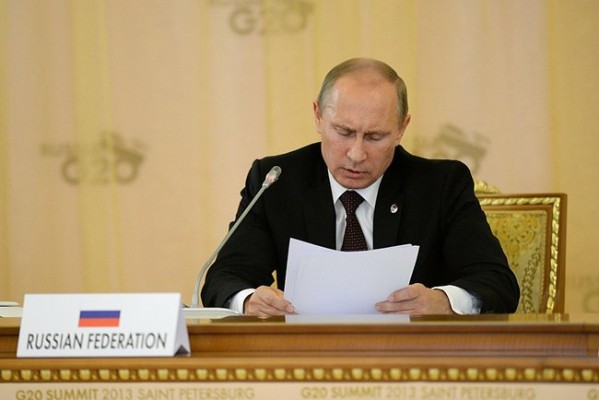
Killing Two Birds with One Stone: Russia’s Anti-Terrorism Law
On July 7, Russian President Vladimir Putin signed highly controversial anti-terrorism measures into law. These measures represent the quintessential dichotomy of security versus privacy. While proponents argue such steps remain crucial to combating domestic terrorist threats, critics have expressed extreme concern over the loss of privacy rights.
The Law and its Rationale
The law was co-authored by a prominent member of Putin’s United Russia Party named Irina Yarovaya. “Yarovaya’s law,” as some call it, greatly increases government surveillance and heightens punishments for those inciting or justifying terrorism online. It requires Russians to report any information on potential crimes and/or their planning. The law also allows jailing for those as young as 14 years old.
Telecom companies will have to comply as well by storing all forms of communications (text, voice, images, etc.) for six months. Metadata — information on the time and location of sent messages — will be stored for three years.
Such measures come at an opportune time. One, the Duma elections will be held this September, which raises questions on this legislation’s political ramifications. Two, Russia has seen increasingly hostile threats and actions from ISIL.
To combat this, proponents of the law believe such actions must be taken in order to quell the threat of terrorism. The bombing of the Russian passenger jet over the Sinai Peninsula serves as a perfect pretext for the law. However, this attack only supplements growing concerns in the country regarding militant Islam.
Increasing radicalization has clearly become a concern for Russians, especially considering that Muslims make up roughly a seventh of the population. In addition, ISIL has promoted Russian-language propaganda videos and threatened Vladimir Putin with an attack on Russian soil.
In conjunction with this, Russian authorities have captured seven individuals suspected of plotting terrorist attacks in Moscow and St. Petersburg. The threat of terrorism by ISIL and others clearly poses a threat to Russia’s national security. The question, however, is whether these laws will do enough to prevent such attacks from occurring, and if these laws grossly violate human rights.
Human Rights and Feasibility
Human rights activists have expectedly come out vehemently against the new law. Russia’s own Presidential Council on Civil Society and Human Rights called for Putin to veto the law on the grounds that it violates the constitution. Others have pointed out the law’s reminiscence of Soviet era distrust of the population, particularly with regards to punishment for failing to report a crime.
Telecom companies and businesses have unexpectedly come out against the new law. The costs of data storage, they argue, can reach as high as $34 billion. In response, the Russian government has offered some concessions, and will introduce subsequent measures to offset negative outcomes.
However, promises of future measures do not sit well with activists. Russia has increasingly clamped down on anyone suspected of orchestrating major political dissent, as illustrated by the “foreign agent” law requiring certain NGO’s to register as foreign agents. This allows Russia to have more legal leeway in restricting their actions. In other words, this new law is part of a trend that limits freedoms in favor of security. As a result, the government inherently becomes more authoritarian.
Security, or Authoritarianism?
Putin has been known to centralize power. From nationalizing the media and major industries, to signing the “foreign agents” law, it begs the question whether these new laws truly intend to fight terrorism, or if they instead serve to consolidate power.
The answer is both.
As stated above, Russia clearly has a problem with terrorism. Government inaction would not bode well for public approval, and citizens as well as government officials’ lives would be put in danger. Russia has historically placed the security of the state above the desires of its citizens (i.e. economic, social, and political freedoms). This new law is only business as usual.
However, Russia is also in a new era of 21st century politics. While it doesn’t face invasive threats any longer (e.g. France, Germany), the Putin regime fears internal divisions that could potentially topple the government, as he saw with the various color revolutions. This is why political activism has become more and more limited throughout his tenure.
Adding to this, the definition of “terrorism” generates controversy. Typically, westerners may associate terrorism as an attack on property or people for political purposes. Russia expands this definition of terrorism to include anyone who might pose a threat to the government, with “threat” being the vague and operative word.
The new surveillance laws on paper seek to scope out those who wish to inflict harm on Russia and its citizens. But there is a possibility that imprisonment may occur for those who engage in political dissent as well. By further limiting dissent and activism, Putin effectively kills two birds with one stone: decreasing the threat of terrorism, and decreasing the threat of internal division.





